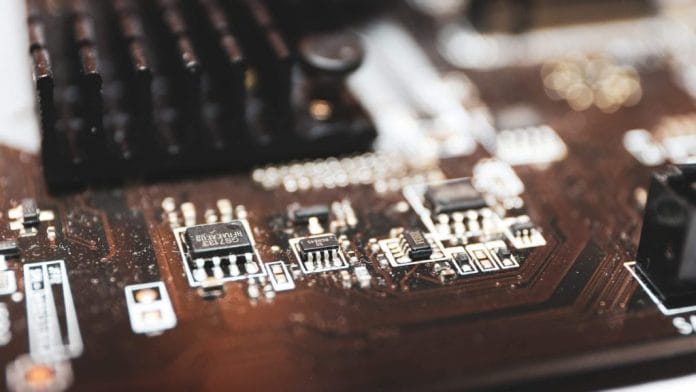New Delhi: Last month, Taiwan, considered the hub of the global semiconductor industry, passed laws that offered incentives to local chipmakers to keep research and development within its territory. This came six months after the US passed its CHIPS Act that allocated over $50 billion of funding to advance chip manufacturing.
However, these kinds of legislation from major players in the global semiconductor industry is unlikely to affect India’s ambitions.
Experts say this is because India is still starting at the lower end of the supply chain and does not pose a “threat” to the likes of Intel or TSMC (Taiwan Semiconductor Manufacturing).
Meanwhile, the US has offered explicit support to India to help it build a semiconductor production ecosystem in the recently launched initiative on Critical and Emerging Technology (iCET).
Also Read: ‘We’re a strong voice on energy transition,’ Modi urges global investors to explore sector
‘Laws passed to protect supply chain’
While laws like the CHIPS (Creating Helpful Incentives to Produce Semiconductors and Science) Act have been noted to have “protectionist undertones”, K Krishna Moorthy, CEO & President of industry body India Electronics & Semiconductor Association (IESA) argues otherwise.
“These acts that they have passed are not to be viewed as protectionist but rather as to ensure that supply chains aren’t as susceptible to disruption as they proved to be during the Covid-19 pandemic,” he told ThePrint.
Since 2020, there has been a major supply shortage of semiconductors across the world. Since virtually all modern devices and electronics require chips, various industries have struggled to meet consumer demand.
Moorthy added that the CHIPS Act won’t affect India in a “significant way” and that there is “enough space for everyone” in the global industry.
In December 2021, India’s Union Cabinet approved the Semicon India Program with an outlay of approximately $10 billion. India doesn’t have any semiconductor fabrication plants, which manufacture chips but has been wooing foreign chipmakers to help out.
‘iCET shows US support for India’s chip plans’
Experts like Pranay Kotasthane, Chair, High Tech Geopolitics Programme at Takshashila Institution, argue that such laws from Taiwan and the US seek to protect the most advanced technologies, which doesn’t necessarily apply to India.
“These legislations aim to protect the most advanced technologies and India isn’t exactly a threat to the likes of TSMC or Intel. It’s still climbing up the supply chain ladder. Also, with initiatives like iCET, the US has expressed explicit support for development of a semiconductor design, manufacturing, and fabrication ecosystem in India,” said Kotasthane.
The iCET initiative was launched on 31 January in a bid to elevate the strategic technology partnership and defense industrial cooperation between the US and India.
The iCET called for India-US cooperation in building resilient semiconductor supply chains and to “encourage the development of joint ventures and technology partnerships on mature technology nodes and packaging”.
Last May, an international semiconductor consortium (ISMC) – run by Abu Dhabi-based Next Orbit Ventures and Israel-basedTower Semiconductor – announced it will invest $3 billion to set up a chip-making plant in India.
Reports also indicate that US-based Micron Technology Inc and the Gujarat government are close to making a $10 billion deal in manufacturing facilities in the state.
However, Kotasthane explained that while fabrication plants are necessary they won’t make India ‘Aatmanirbhar’ (self-reliant) when it comes to semiconductors.
“It might reduce a strategic vulnerability, that too to a small extent. India’s strength is in chip design and potentially, in chip assembly,” he said.
(Edited by Geethalakshmi Ramanathan)
Also Read: Green hydrogen & shipping focus of delegation visiting India next week, says Norwegian ambassador






